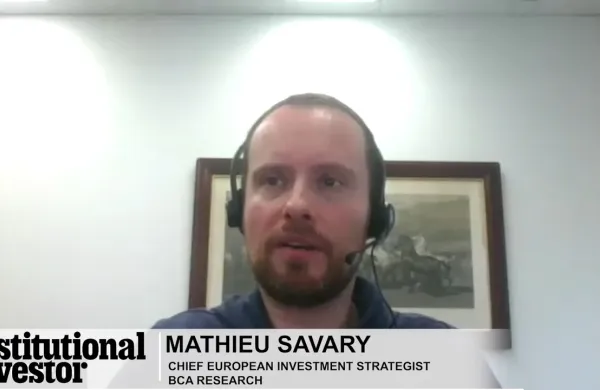A recent global survey1 of asset managers asked about the strategic priorities for their businesses, and how they plan to go about achieving them. With controlling costs emerging as the top strategic priority in the survey (87%), it’s no surprise that an increasing number of managers are looking to outsource what historically have been internal functions. As the pressure on managers to seek efficiencies has increased, the outsourced services available to them have become more sophisticated and holistic. Today, managers are increasingly aware that functions across their entire office can be effectively outsourced, allowing them to focus on what they do best – create alpha. And COVID-19 has driven home the idea that, at the very least, outsourcing should be part of managing the risk around operational resiliency.
The survey cited above was conducted by Northern Trust, and three leaders of the firm’s Global Fund Services (GFS) collaborated on the resulting report: Caroline Higgins, Head of GFS, Asia; Clive Bellows, Head of GFS, EMEA; and, Ryan Burns, Head of GFS, North America. II recently conducted a tripartite interview with the authors about the findings in their paper Driving Growth in Asset Management: Solutions for the Whole Office in 2020 and Beyond.
Among the operational areas managers in the survey said they’d consider outsourcing in the next two years, which can have the most immediate effect on their business? And to which is outsourcing likely the best solution in the long run?
Clive Bellows: In Europe, we have seen a pattern of managers outsourcing their currency management, and that’s something that we can have up and running very quickly. It eliminates a huge amount of risk for managers, and they can spend the time they would use calculating foreign exchange exposures to concentrate on generating alpha. Outsourced trading is also something we can stand up in weeks as opposed to months, and it can be the whole book or a particular region. We had a client in London come to us recently and say, “Two of four traders have decided to retire on short notice. How quickly can you set up to handle our trading?”
Ryan Burns: The most meaningful in cost savings is outsourcing the entire middle office, but that has the longest tail in terms of assessing it, making the decision, and transitioning to it. What we’re seeing is firms first outsourcing what they can do quickly – trading, FX, securities execution – and then taking on the heavier lift of outsourcing middle and back office functions.

Does it surprise you at all that the survey revealed investor experience and improving distribution support are at the low end of operational priorities?
Caroline Higgins: No, because value add is important to achieving both of those goals, but you can’t maximize value add until you lessen the regulatory and operational burden on your people. Managers have to free up existing resources before they can move on to value add.
Another priority mentioned by managers in the report is expansion into new markets, but that requires distribution support. If distribution support is a low priority, how do they get that support in order to expand?
Higgins: It’s a bit chicken and egg, but the decision to expand into a new market is the first step, followed by mapping out a plan – who in your organization will lead the journey? Who will you partner with to move swiftly and efficiently? To be truly successful in new markets, managers will need to deploy freed up resources toward the product, the investors, and the distribution support which can ultimately grow AUM.
Burns: I think the managers have their priorities in order for what in many ways can be a zero-sum game on the cost side. You really can’t increase resources or spend until you’ve created the efficiencies, and the survey indicates managers are taking a thoughtful approach to the very real cost pressures they face – they realize they have to do one before the other in order to get both done.

When you say “partner,” Caroline, what products or services are you referencing?
Higgins: Distribution, for one example. Managers are always going to have their own distribution teams, but in Asia and Europe a lot of the distribution occurs via platforms. The manager puts its fund onto a platform, but often doesn’t see where the distribution is coming from because by using the platform – whether it’s an all funds or other type of organization – distribution has essentially already been outsourced.
Bellows: In Europe, for example, we have tens of thousands of investor accounts on our transfer agency system, but about 80% of the flow comes via 30 organizations which are those fund platforms. Intuitively the answer to the question about distribution being a lower priority may seem surprising, but the actual model for the way managers are achieving their distribution in some ways has already been through the outsourcing journey.
Higgins: The trend overall is definitely moving towards using even more platforms rather than appointing direct distributors. It takes less effort to support the distribution model today than it did in the recent past when managers had direct sales forces everywhere they did business.

It’s interesting that a vast number of managers say they will achieve their priorities over the next two years via technology. Are they overestimating the ease with which they can leverage technology?
Burns: In the current environment, it’s not possible to overestimate the benefits of technology on processes or the transformation that we’re all going to have to make in the next 10 years. There is recognition among managers that they need to be technology-enabled wherever possible to ensure they have the right operational model and cost structure in place. An additional consideration is how technology can enable managers to better serve a growing investor base while managing more complex and costly regulatory demands for information and data. So, how a firm gets there needs to be considered when it is relying on technology to transform the business. For context, I think that journey is best viewed through the lens of the core value proposition of the firm. If it’s not a core activity that the firm plans to focus capital dollars or staff to, it should be considered for outsourcing. If the technology is central to the firm’s identity, rather than a tool that enables the firm, it may need to stay in house regardless of the availability of technology through outsourcing.
Bellows: We work with hundreds and hundreds of managers around the world. At one end of the scale there are the largest managers who have access to huge in-house technology infrastructures. At the other end, it’s not unusual for a manager with maybe $10 billion in AUM to have only 10 people in the firm. The need for that firm to embrace outsourcing of technology is very different.
Nearly a third of respondents said that if they were going to extend distribution by increasing alternatives options they would outsource – does that surprise you given the importance most asset managers and investors place on alternatives today?
Bellows: There’s a huge difference between private equity, real estate, private debt, and so on, and many managers are getting their exposure to alts via funds. The point is that there is not a one-size-fits-all for alternatives. The servicing of a pure private equity portfolio is very different from the servicing of a real estate portfolio, which differs greatly from the servicing of a private debt portfolio. Certainly, if a manager wants exposure to multiple different strategies, and they want to move quickly, they’re going to have to outsource.
Higgins: In Asia, the growth of high net worth individuals has been substantial over the last 10 years, and Asian investors have a strong appetite for alternative investments, particularly private equity and real estate. Many of the managers are spinoffs from other hedge funds, and will generally look to outsource everything. Around private equity in particular, we’ve seen firms try to handle everything in-house, but the solutions those firms offer can’t really cater to growth or change in regulations or technology, even though they are selling a bespoke, low-volume, high-touch product. As a result, the trend we’re seeing in Asia with some specific alternatives is to consider outsourcing even from the beginning of the setup of the firm.
Expanding into new regions is a goal for many managers. How can outsourcing make life easier for firms who are making that leap?
Bellows: From a European perspective, the first thing a manager has to think about is whether the construct of an existing product will suit potential new markets. For example, we have a fiduciary manager on our books in Europe who is looking to go into the Swedish market, and the Swedish clients have said, “Happy for you to come and sell to us in Sweden and we like the product – but if you want to sell to us, you have to have a domestic Swedish fund.” Even relatively big organizations aren’t familiar with everything entailed to set up a domestic Swedish fund, and there is nuance in the markets across Europe. There’s a good chance your product isn’t going to be immediately scalable in every single country, so the benefits of a partner who has boots on the ground and familiarity with the nuance quickly become apparent. For the manager, it’s about making sure the provider that you’re outsourcing to has a depth of knowledge in all the markets that may be of interest.
Higgins: While offshore fund structures are highly utilized in Asia, in many Asian countries there is an investor preference for local products, and that makes expansion into any given area a challenge because the region as a whole is very diverse and fragmented, and lacks an overarching regulatory framework. It’s common for managers to follow institutional investors into markets, but if they don’t have a plan ahead of doing so they won’t succeed. There’s a need to partner with distributors or platforms that can sell on your behalf, but you have to know investors in the market are looking for whatever your strategy is, and what structure they desire as well. It’s a holistic story, and it all must align before a manager enters a market.
Nearly half of those surveyed said that they planned to reach their distribution goals by introducing new products. How can the operating model be customized or recreated via outsourcing to help to launch new products?
Burns: One of the core tenants of outsourcing, particularly in the middle office, is that you’re effectively getting access to systems technology and human capital that may have a broader expertise because we are already servicing a number of different managers on the same platform, and they may have the same investment strategy in place. So, one of the benefits of outsourcing the middle office is speed to market with a new product because you’re taking some of the technology challenges off the table and letting the outsourcing provider handle them. The right outsourcing partner can also provide necessary regulatory support, and that matters because there are multiple factors to consider regarding how you’re going to achieve the increased distribution to make the new product successful. Outsourcing some of the components of support via fund wrappers or an umbrella structure, for example, allows you to leverage knowledge, expertise, and human capital, without having to build it from the ground up.
Higgins: In relation to regulations in Asia, many Asian managers need to grow AUM outside of their home market or specialization. They may not be expert in European markets, but there’s high interest from European investors in Asian strategies. Asian managers have also been impacted by regulations such as MiFid II, which were not mandated in Asia or many other markets outside of the EU, but by default became part of some of the guidance notes and best practice. A lot of European firms that operate in Hong Kong and Singapore went from comfortably managing one or two markets in-house to a highly complicated scenario. Regulation has really pushed outsourcing forward. What started in the back office – accounting, custody, and so on – has become prominent in the middle office as firms try to manage a global model when their strategy is very specialized to Asia.
Bellows: Managers do not to want to spend any more time than they have to reacting to regulation, and that includes while launching a new product. They want to be compliant, and demand is only going to increase for outsourced providers who can de-risk their compliance by making sure they have the right tools to be able to do the reporting and whatever else the regulation requires.
Data management ranks very highly as an area that managers would likely outsource. Why does it seem asset managers always want help with data management?
Burns: Because good data drives everything else. If you have bad data, everything becomes a problem – regulatory reporting, the ease with which you analyze performance, and tracking of investment flows. In addition, because digitized data is available more quickly and more accurately than it has been historically, it’s essential to everyone in the industry, and it’s really expensive and difficult to do. If you’re a relatively small asset manager, you’re going to have to seriously consider leveraging a more holistic capability provided by outsourced providers – if you already aren’t doing so.
How do you see the knock-on effects of the COVID-19 crisis playing out as it relates to outsourcing? It seems logical it would spur even more growth in outsourcing.
Higgins: Everybody is talking about operational resiliency, particularly middle and front office functions that historically have been viewed as needing to be close to the portfolio manager. I’ve heard from a lot of clients that they have felt pressure from within their own firm to do something about it, especially in Asia where they have been highly reliant on people versus technology. Asia generally has been slower to adopt outsourcing, but over the last few months we’ve seen noticeably more inquiries around middle or front office solutions, with clients indicating they need to report back to senior management or to their boards about how they will manage operational resiliency.
Bellows: We’re hearing from managers who are picking up the phone and saying, “Look, we’ve been talking to you about outsourcing. This crisis has just intensified the need to do this, can we actually make the decision and quickly move forward?” There’s no doubt that COVID-19 is going to increase demand and the adoption of outsourcing. We’re already seeing it happen.
Learn more about how to gain efficiency and flexibility across your fund operations.
1Driving Growth in Asset Management: Solutions for the Whole Office in 2020 and Beyond.
© 2020 Northern Trust Corporation. Head Office:50 South La Salle Street, Chicago, Illinois 60603 U.S.A. Incorporated with limited liability in the U.S. Products and services provided by subsidiaries of Northern Trust Corporation may vary in different markets and are offered in accordance with local regulation. This material is directed to professional clients only and is not intended for retail clients. For Asia-Pacific markets, it is directed to expert, institutional, professional and wholesale clients or investors only and should not be relied upon by retail clients or investors.For legal and regulatory information about our offices and legal entities, visit northerntrust.com/disclosures. The following information is provided to comply with local disclosure requirements: The Northern Trust Company, London Branch; Northern Trust Global Investments Limited; Northern Trust Securities LLP. Northern Trust Global Services SE, 10 rue du Château d’Eau, L-3364 Leudelange, Grand-Duché de Luxembourg, RCS B232281; Northern Trust Global Services SE UK Branch, 50 Bank Street, London E14 5 NT; Northern Trust Global Services SE Sweden Bankfilial, Ingmar Bergmans gata 4, 1st Floor, 114 34 Stockholm, Sweden; Northern Trust Global Services SE Netherlands Branch, Viñoly 7th floor, Claude Debussylaan 18 A, 1082 MD Amsterdam; Northern Trust Global Services SE Abu Dhabi Branch, registration Number 000000519 licenced by ADGM under FSRA # 160018. The Northern Trust Company Saudi Arabia, PO Box 7508, Level 20, Kingdom Tower, Al Urubah Road, Olaya District, Riyadh, Kingdom of Saudi Arabia 11214-9597, a Saudi Joint Stock Company – Capital 52 million SAR. Regulated and Authorised by the Capital Market Authority License # 12163-26 CR 1010366439. Northern Trust Luxembourg Management Company S.A., 6 rue Lou Hemmer, L-1748 Senningerberg, Grand-Duché de Luxembourg, Société anonyme RCS B99167. Northern Trust (Guernsey) Limited (2651)/Northern Trust Fiduciary Services (Guernsey) Limited (29806)/Northern Trust International Fund Administration Services (Guernsey) Limited (15532) Registered Office: Trafalgar Court, Les Banques, St Peter Port, Guernsey GY1 3DA.






